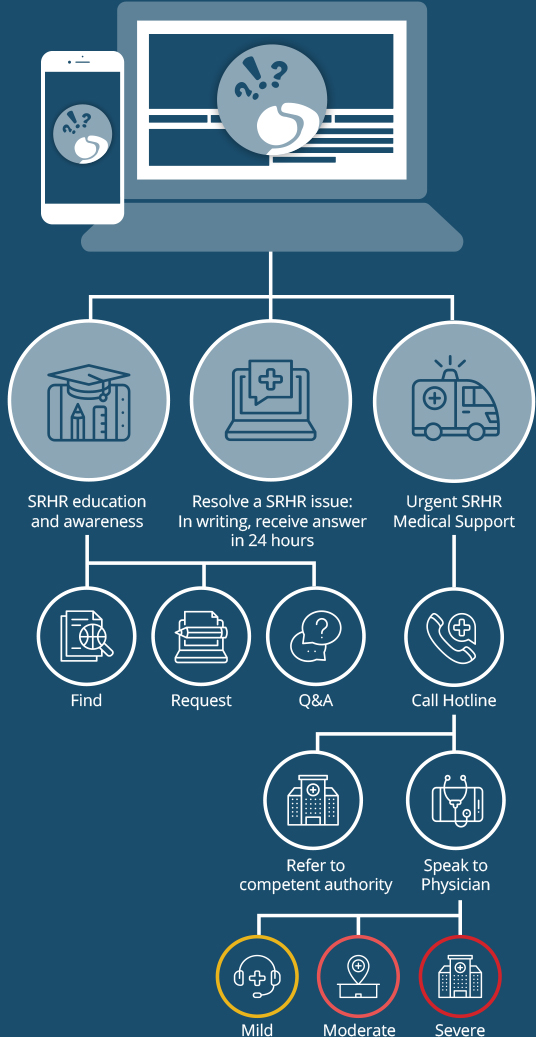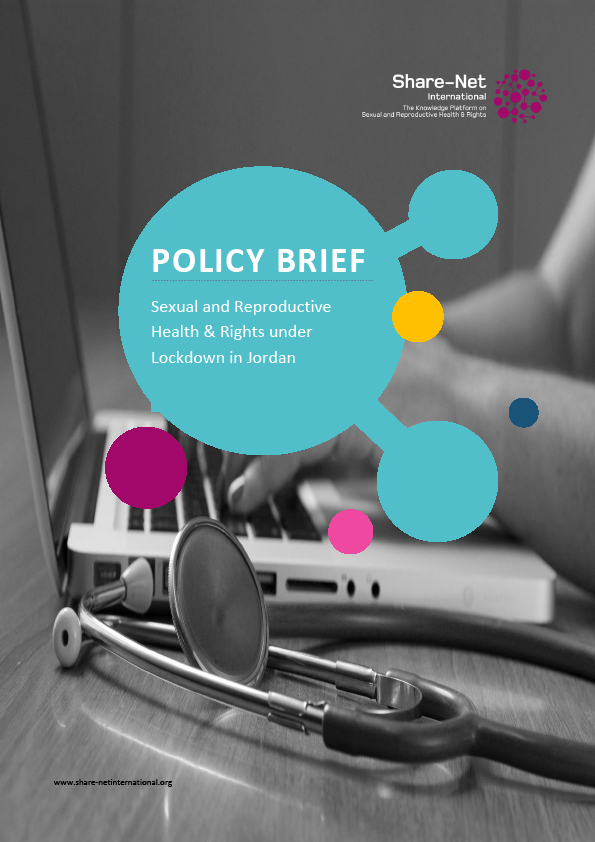SRHR eHealth
Easy and safe access to Sexual and Reproductive Health Services in Jordan during lockdown
The aim of this study was to investigate the needs of sexual and reproductive health and rights for youth and women and suggest alternative ways for easy and safe access for these services.

Lessons learned
- The lockdown has arrived to unprepared population. Phobia, propaganda, misinformation and, in many cases, disinformation controlled the behaviour of young people, pregnant women, adolescent boys and girls. These groups did not have the chance to ask questions. Priority was given to those with chronic diseases and those who have fever or signs of COVID-19. The lesson learnt is that every single person has the right to get access to care and information regardless of curfew or lockdown. The authorities and health insurance organizations have the responsibility to find appropriate solutions;
- The cultural, linguistic, technological and health systems variation make a huge difference when applying evidence. The difference is in the ways systems are developed and allied in different settings affect human behaviour towards sexual and reproductive health services in countries. The lesson is “be careful when applying evidence in a setting that has been generated in another setting”;
- Healthcare workers, health administrators and patients have different reasons and motivations to be at the healthcare centers. Dealing with the motivation of one group or even one individual can lead to many different results and conclusions. Patients want to get cured and receive the best information available to help them make informed decisions about their sexual and reproductive health. Health care workers want to deliver high quality care while at the same time help as many patients as possible in the shortest possible time. Often sufficient time is not available for conversations and advice. Administrators have their own agenda to reduce cost and increase the number of visitors to health care centres. These are conflicting motivations and reconciling them is a huge challenge for the health authorities. The lesson is to consider values and ethics of health care delivery considering the different players in the process;
- Information and communication technology (ICT) in health in the form of eHealth, health information on the Internet or telehealth has been used a primary source of information during the lockdown. Yet, it is the most underestimated source with often the strongest focus on the use of technology and not the quality of the content. The government, the nongovernment organizations and even the people seeking advice have all focused on how to increase the bandwidth of the Internet, how to get equipment to access the Internet and how can the mobile phone be used to search the Internet, connect to social media and send/receive messages. The content of the websites, the messages and the conversation itself have often been ignored. This has resulted in abuse of the media, low quality of websites, inappropriate content, harassment, violence and misuse of resources. The lesson learnt is that not only the availability and access to information but also the quality of the content is important to consider and should be support by health authorities and donors;
- Patients are dying to get information and advice from neighbours, elders, digital resources and health professionals. Timeliness, ease of access, availability of the source and confidentiality have all been justifications given to use one rather than the other. The lesson is to make all sources available, accessible and reliable through empowerment, enabling and community participation;
- Meeting people face-to-face and explaining to them the reasons behind this study and talking to them using the language they understand and listening to their concerns have increased the level of trust between the research team and the audience. This has meant openness, frankness and free dialogue. The interviews have revealed information that would have been impossible to collect if another data collection tool was used such as questionnaire or observation. The lesson learnt is that in situations like this one the best method to collect data is to attentively listen and follow up and let the conversation flow;
- The discussion with policy makers, patients and health care experts while preparing the model was honest and open. It was clear that there is a need for a different way to deliver health care. That was has to consider the local situation, the pandemic, the needs of people, the resources, the infrastructure and the human resources in health. There was a noticeable eagerness among stakeholders to change based on evidence. The lesson learnt is to bring policy makers, the people and the researchers together to build better and common understanding and come up with realistic solutions to a well-defined problem.


